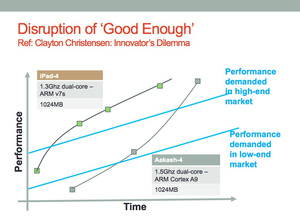Workplace wellness questionaires raise privacy, discrimination concerns
It is legal for employers to use financial incentives to encourage workers to fill out health risk assessment forms as long as that reward is based on completion of a wellness form and not tied to specific questions related to an employee's health status.
In fact, employer use of financial inducements is likely to increase under new wellness rules, scheduled to take effect in January as part of the Affordable Care Act. The rules allow employers to offer incentives of up to 30 percent of health coverage costs to employees who complete participatory wellness programs like health risk questionnaires, or biometric assessments like body-fat percentage measurements.
A workplace wellness questionnaire that asked female employees questions about their pregnancy plans might cause a disproportionate number of women to decline to participate in the program, said Matthew T. Bodie, a professor at Saint Louis University School of Law. If that employer also fined its employees for not filling out the questionnaire, its wellness program could potentially have a discriminatory financial impact on that company's female employees, he said.
"Down the road, the law could get a little firmer on this if there is a consensus that employers are going overboard in what they are asking," said Professor Bodie, who specializes in labor and employment law.
The Equal Employment Opportunity Commission had a special meeting in May on wellness programs in which its legal expert concluded that the agency should issue guidance on the potential intersection of wellness programs and federal antidiscrimination laws. In particular, the expert said, the agency should clarify the meaning of "voluntary" employee participation.
A federal lawmaker is asking the Equal Employment Opportunity Commission to investigate employer wellness programs that seek intimate health information from employees, and to issue guidelines preventing employers from using such programs to discriminate against workers.
Related
Health Plan Penalty Ends at Penn State (September 19, 2013)
Technophoria: On Campus, a Faculty Uprising Over Personal Data (September 15, 2013)
The request, by Representative Louise M. Slaughter, Democrat of New York and a staunch advocate for health privacy rights, came a few days after Pennsylvania State University suspended part of its new employee wellness program that had drawn objections from faculty members.
"What happened at Penn State was appalling to me," Ms. Slaughter said in an interview on Tuesday, referring to the university's requiring employees to pay a monthly surcharge of $100 if they did not fill out detailed health risk questionnaires.
Called Take Care of Your Health, the Penn State program initially required employees, including faculty and staff members, to fill out the questionnaires -- which asked about workplace stress, marital problems and women's pregnancy plans -- or pay the surcharge. After faculty members complained that the program seemed coercive and invaded their privacy, the university suspended the penalty.
